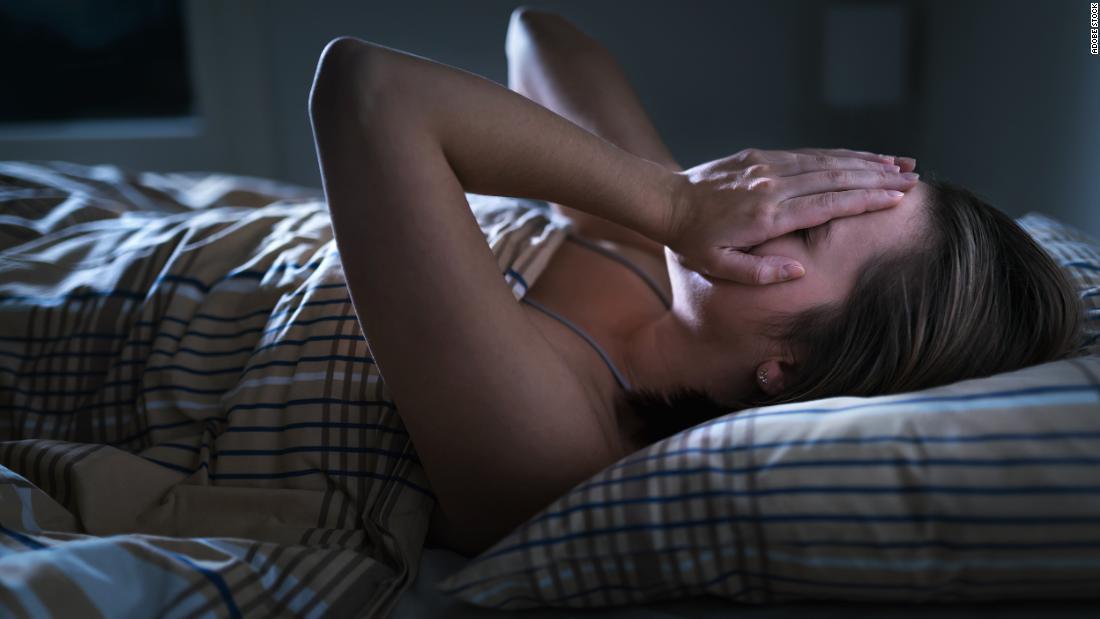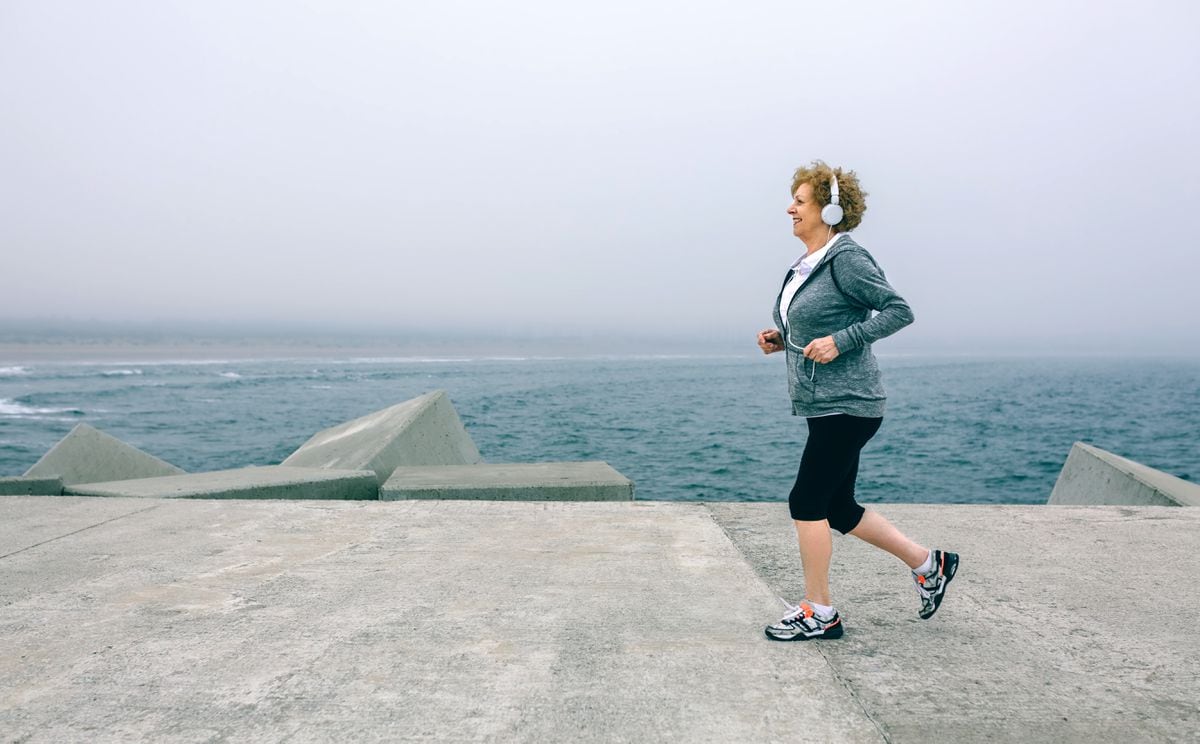9 foods that will make you sleep better 1:55
(CNN) -
Have you fallen asleep at your desk, even after what you thought was a good night's rest?
Then you are likely asking yourself the same question as many others: How much do I need to sleep?
The answer to the question of how many hours it takes is not so straightforward, says Dr. Raj Dasgupta, associate professor of Clinical Medicine in the division of Pulmonary, Critical Care and Sleep Medicine at the University's Keck School of Medicine. Southern California.
Sleep needs are very individual, he said, but the general recommendation and "sweet spot" is to get seven to nine hours of sleep a night.
However, the recommendations do change as people get older.
"Sleep needs vary throughout life," said Christina Chick, a postdoctoral researcher in Psychiatry and Behavioral Sciences at Stanford University.
Poor or poor sleep could cause dementia 0:40
CDC sleep guidelines
Adults should sleep at least seven hours a night, but 1 in 3 don't, according to the US Centers for Disease Control and Prevention (CDC).
Poor sleep is linked to long-term health consequences, such as an increased risk of cardiovascular disease, diabetes, obesity, and dementia.
In the short term, even a day of sleep loss can harm your well-being, according to a recent study.
People who sleep little can also be predisposed to disorders such as anxiety, depression and bipolar disorder, Dasgupta said.
advertising
Sleep hygiene: 8 ways to train your brain to sleep better
"There are chronic consequences and acute consequences, so the dream is more than the saying of 'who gets up early, God helps'," he said.
"It's much more than that".
Dream for children and adolescents
If babies seem to sleep all day, they do.
In the first year of life, babies can sleep 17 to 20 hours a day, according to Dasgupta.
Babies 4 to 12 months old need their 12 to 16 hours of sleep, counting naps, according to Chick.
8 useful tips to be able to sleep 1:14
Young children, who are between 1 and 3 years old, should sleep between 11 and 14 hours, according to Dr. Bhanu Kolla, an associate professor of Psychiatry and Psychology at the Mayo Clinic with a special interest in sleep.
Children ages 3 to 5 should sleep between 10 and 13 hours, he added, and children ages 6 to 12 should sleep between 9 and 12 hours.
For children up to 5 years old, these sleep recommendations include naps, Chick said.
Teens should get eight to 10 hours of sleep, Kolla said.
This recommendation has sparked a debate in recent years about school start times.
"As children approach adolescence, they naturally prefer to go to sleep later and wake up later," Chick said.
"That's why school start times are such an important focus of debate: If they can't fall asleep later, but school start time remains the same, they will sleep less."
This is what living with the short sleep gene is like: it doesn't matter if you sleep little, you have a lot of energy
The amount of sleep is important, but so is its quality, Dasgupta added.
Sleeping more soundly and reaching the Rapid Eye Movement (REM) phase helps with cognition, memory, and productivity throughout the day.
The REM phase is the stage of sleep in which memories are consolidated and stored.
It also allows us to dream vividly.
Sometimes people can get the right amount of sleep but still feel fatigued, which may mean they are not reaching these sleep phases.
Tips so that your sleeping problems do not keep you awake 4:51
"We tend to underestimate the need, especially in teens, in people who go to high school, for how important sleep is," Dasgupta said.
The dream of university students and adults
The stereotypical image of the college student often includes messy hair, eye bags, and a coffee or energy drink in hand.
It doesn't matter if they spend all night partying or studying for a test - both of these lead to sleep deprivation.
"It's unfortunate, but it's almost a rite of passage for a college student to stay up all night, even though we know that's not the thing to do," says Dasgupta.
He and Kolla agree that seven to nine hours of sleep is best for adults, although Kolla added that older adults can better cope with lack of sleep.
As an exception, young adults may need nine or more hours on a regular basis because their brains are still developing, Chick said, and adults of any age may also need nine or more hours when recovering from injury, illness or debt. sleep.
12 Questions and Answers About Sleep: Do You Have a Sleep Deficit?
What Causes Insomnia?
Is it good to take a nap?
There are also "natural variants," Kolla said, referring to some people who need more than 10 hours of sleep and others who sleep less than four and function normally.
If you're wondering if it matters if you're an early riser or a night owl, Chick said it depends on "whether your lifestyle is compatible" with your preference.
Cell phone addiction could cause sleep problems 0:49
"If you are a night person, but your job requires you to be in the office at 7 in the morning, this mismatch is less than ideal for your physical and mental health," he wrote in an email.
"But it would be just as problematic for an early riser who works the night shift."
Are you an owl or a lark?
One of these options could protect you from depression, according to a study
How to improve your sleep
Not getting enough sleep?
Here are some ways to fix it:
Follow a routine at bedtime.
Try to go to bed and wake up at the same time every day. You can even keep a journal to record these hours of sleep and how often you wake up at night, Dasgupta said, so you can get an idea of what works for you. You should also make sure your bedroom is dark, cool, and comfortable when you go to sleep.
Turn off electronic devices.
Do this as soon as possible before bed, Chick added, as exposure to light can affect your body's sleep-wake cycle.
"Especially if the goal is to fall asleep earlier, it is important to be exposed to bright natural light as early as possible during the day, and to limit exposure in the hours before going to bed," he said. "Electronic devices mimic many of the wavelengths of sunlight that tell your body to stay awake."
Try
mindfulness
techniques
.
Breathing exercises, meditation and yoga can also promote sleep, Chick added.
Their recent study showed that mindfulness training helped children get more than an extra hour of sleep a night.
The benefits of meditation for your health 1:10
Adopt good eating and exercise habits.
Lastly, eating healthy and maintaining a daily physical exercise regimen can help you sleep better at night, Dasgupta said.
"Always try to be consistent with exercise throughout the day," he said.
"Exercise relieves stress, helps increase the urge to sleep at night, so there are a lot of good things there."
Sleep quality










/cloudfront-eu-central-1.images.arcpublishing.com/prisa/KMEYMJKESBAZBE4MRBAM4TGHIQ.jpg)



